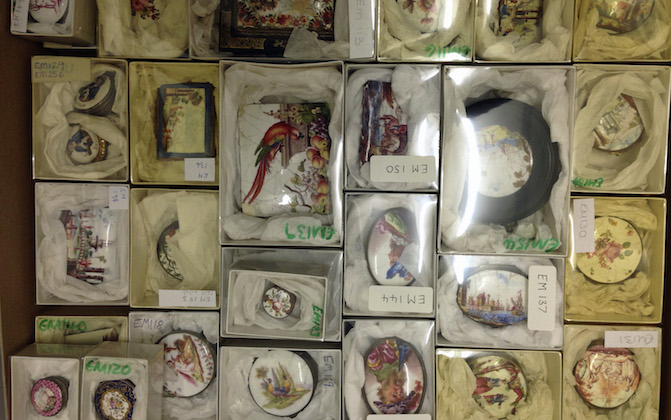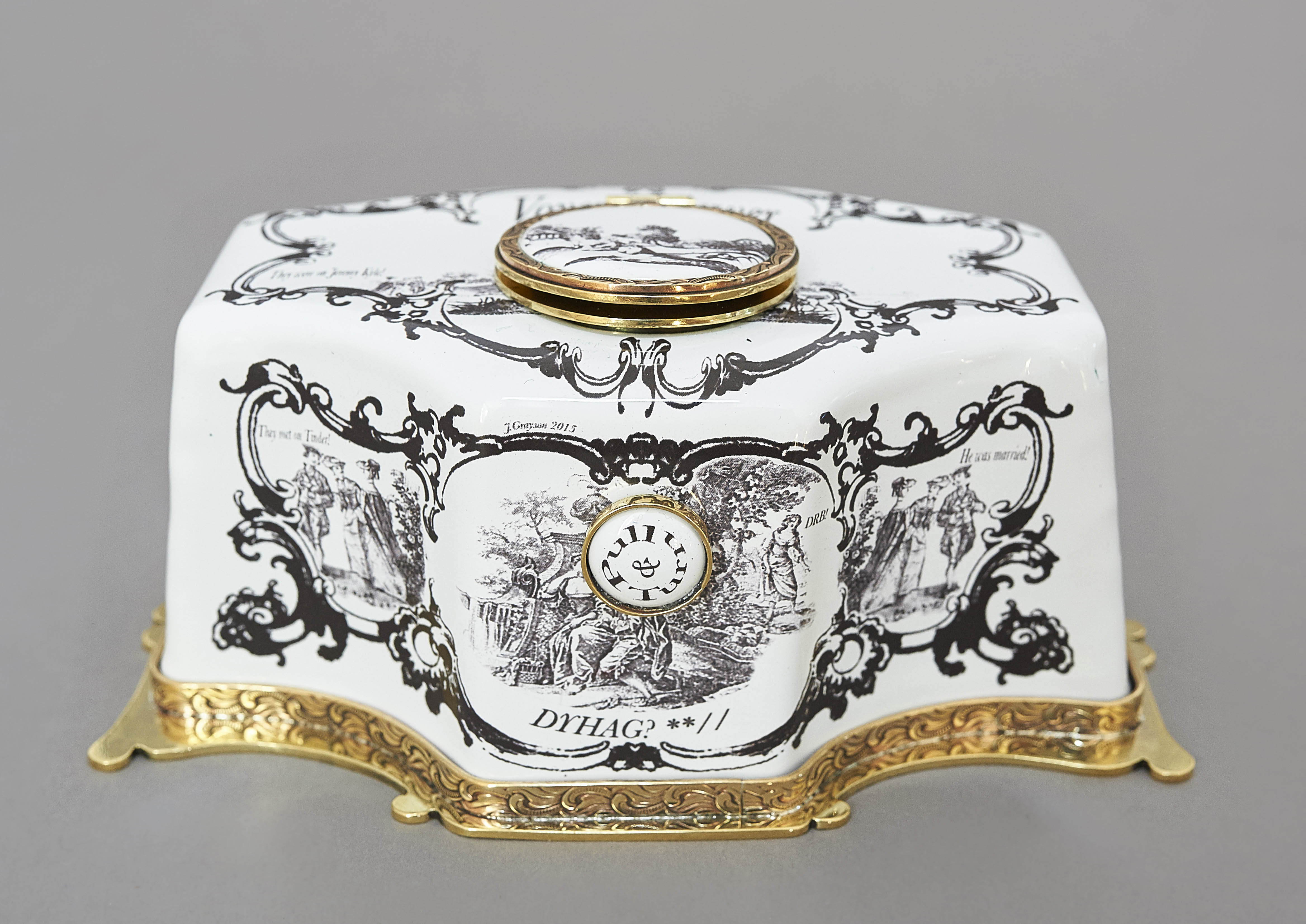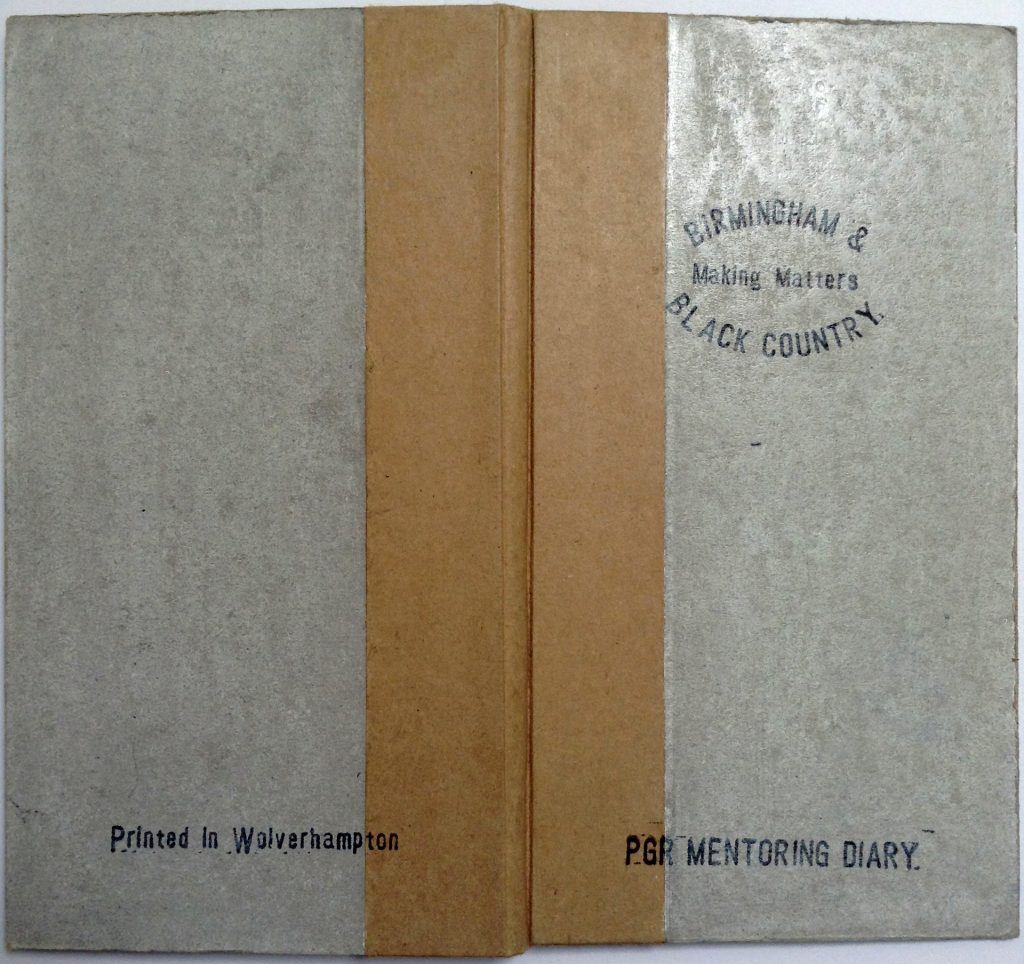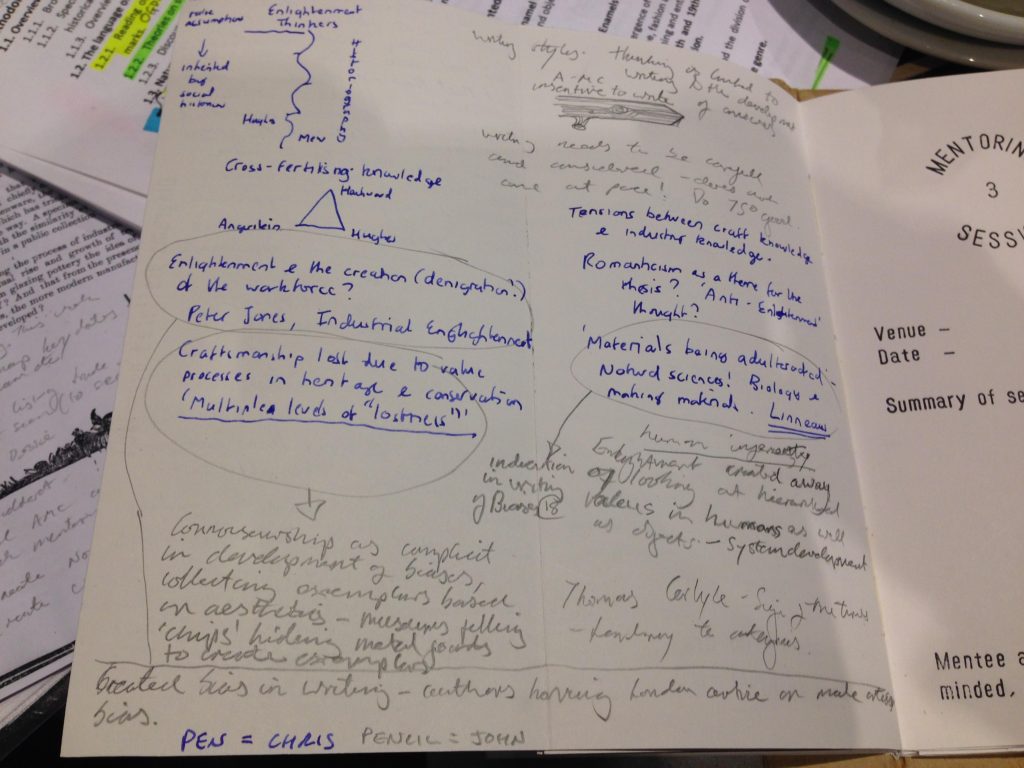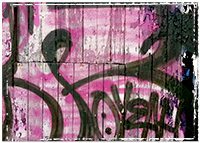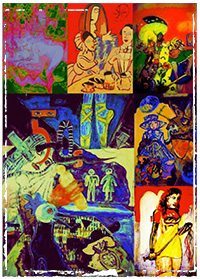The life of a PhD researcher is simultaneously incredibly rewarding and challenging. The reward: one’s close proximity with the subject you love – immersion…even obsession, with a field that you are passionate about. In my case it’s 18th-century craft skills used in the making of enamel boxes; the thrill of knowing you are making new discoveries or hypothesis; becoming the “expert in your field”. The challenges, paradoxically, are created by this close proximity. The sense of being overwhelmed by the sheer volume of material to sort through, process, analyse; the worry that your methodology for uncovering new knowledge is not appropriate or robust enough; even fear of missing a critical fact, or being beaten to the ‘publishing’ finish line by some other anonymous researcher.
The PGR Studio mentoring scheme has been a brilliant adjunct to the combined formal support structures of PgCert and supervision given by the University. Providing an antidote to some of these constant niggles, the voice of imposter syndrome etc.!
There is a sense that much consideration is given to matching mentor to mentee – my mentor is from the field of history and not from an art and design background, this has been brilliant, his differing insight has supported my analysis of historical sources that underpin my research, providing reassurance to approach. The mentor-mentee monthly ‘conversations’ over coffee and cake, cheese ciabattas etc., have provided an opportunity to discuss methodology, to offload concerns, to get a second opinion, and discuss future projects, away from the hubbub of the university campus. But more importantly for me – a researcher who often spends long periods of isolation working on my own in the lonely space of the workshop, or museum basement store – the mentoring program provides a sense of community. The social events, combined with the more academically orientated PGR Studio workshops – provide conversation, contact and friendship with like-minded people. The launch event, with prospective mentor-mentee, and later, the social events, facilitated dialogue with doctoral researchers from varying disciplines: music, media, fine art etc. Conversations abounded on differing approaches of enquiry – participants broadening horizons and developing networks along the way.
And what is great about the mentoring program is that it sits (or appears to sit) outside of the ‘formal curriculum’. Evidence of the conversations, the journey, are required but are not onerous – probably acknowledging we all need a break from writing! And so informality is distinctly order of the day.
As a craftmaker, I make satirical objects, appropriating 18th and 19th-century aesthetics to tell contemporary narratives. And in my research, I use contemporary craftsmanship knowledge to analyse historic objects, devise hypotheses of construction methods employed, and then test them through making in the workshop. So in the spirit of my research methodology, I hand-made a book, giving it the appearance of an 18th-century factory ledger in which to diarise our meetings. This has subsequently provided an invaluable repository of information for my research.
This year’s mentor-mentee programme is coming to a close, however, the conversations hopefully will continue.
John Grayson is a STEAM Scholar based at the School of Jewellery. He is undertaking research into – Enamel and Enamel Boxes and methods of manufacture around South Staffordshire in the 1700-1800s (Supervisors: Ann-Marie Carey and Richard Coles).
